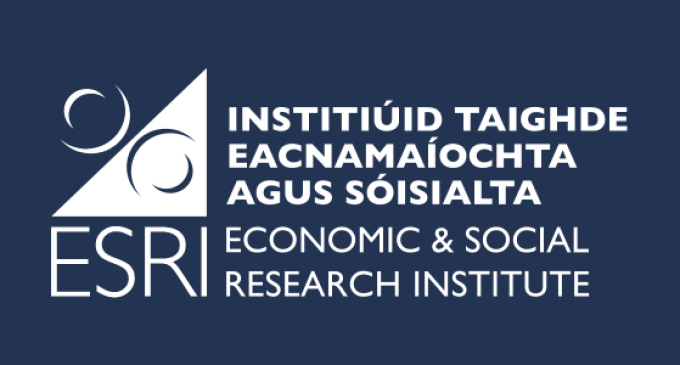New ESRI research assesses the skill needs of Irish companies in AI, automation and blockchain-related jobs

New ESRI research funded by the Department of Further and Higher Education, Research, Innovation and Science (DFHERIS) investigates labour market demand, supply and skills for artificial intelligence (AI), automation and blockchain-related jobs in Ireland. These areas have been identified as having important employment implications for Ireland. New technological developments have the potential to substantially raise productivity levels within the economy. Therefore, it is important that education and training policy is proactive in equipping students and workers with the right skills to take full advantage of technological progress.
The study uses data from a range of sources, including online job vacancies and a workshop conducted with employers for the purposes of this research and aims to inform policymakers in the education and skill development fields so that they can act proactively to ensure that provision meets future labour market needs gaps.
Key Findings:
- Through a labour market forecasting exercise, the study shows that the labour market demand for new entrants in AI, automation and blockchain-related jobs in Ireland is currently being met by supply projections from Irish universities in the medium-term. The results suggest that the university sector is meeting employer demands for new graduates in these three emerging technology areas.
- The research uses job advertisement information to provide an in-depth analysis of the skills and competencies currently required by employers in emerging technology jobs. It found that while employers place much emphasis on technical competencies, there is a significant demand for workers to also be equipped with transversal and business skills. Approximately 50–60 per cent of skills required by employers are technical, 20–30 per cent are transversal, and 20 per cent are business.
- With respect to technical competencies, there is a good degree of overlap in terms of employer requirements for AI and blockchain jobs, while technical requirements for automation jobs tend to be more specific. There is a very high degree of overlap in the transversal and business skills required by employers across the three emerging technology areas.
- As a result of a consultation workshop with employers from technology areas, employers highlighted that a substantial amount of labour market requirements will likely arise from the impending regulatory environment, such as the recently approved European Artificial Intelligence Act. Employers stressed that policy needs to be developed to assist companies in implementing change that will occur at a national level across a whole range of dimensions related to AI.
- While employers were happy with the methodological approach and forecasting exercise, they stressed that high levels of uncertainty regarding the development and adoption of AI could still result in levels of demand exceeding those predicted by our research.
A key contribution of the research is the development of a methodological framework which is highly replicable and can be used periodically to monitor labour market changes driven by new technologies. This methodology is available to policymakers, who can use it to be fully informed of, and act proactively to, changing labour market conditions driven by emerging technologies.
Patrick O’Donovan, Minister for Further and Higher Education, Research, Innovation and Science, said: “We have committed to future-proofing Ireland’s skills supply and implementing the recommendations of the OECD review of Ireland’s Skills System including the need for granular, timely data to inform future policy formation. The research suggests that higher and further education providers have responded in a timely fashion to the emergence of these new emerging technologies. It shows we have a capable, strong system able to deliver the advanced and technical skillsets for Ireland’s workforce, now and in the future.”
Dr Seamus McGuinness, one of the authors of the report, said: “In a rapidly changing world experiencing global megatrends, policymakers require tools that allow them to be proactive in the face of changing labour market requirements, to avoid future skills shortages and gaps. We hope that this research provides an important addition to Ireland labour market foresight capabilities.”


























